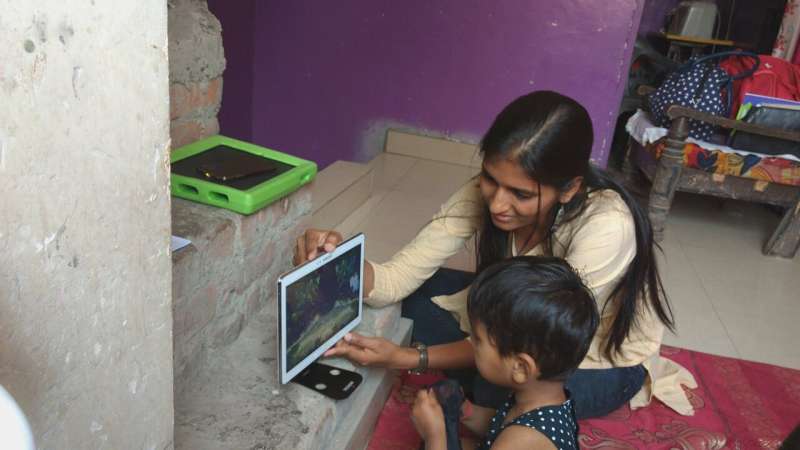This article has been reviewed according to Science X's editorial process and policies. Editors have highlighted the following attributes while ensuring the content's credibility:
fact-checked
peer-reviewed publication
trusted source
proofread
App helps identify autistic children in India

Children with autism and related neurodevelopmental disorders in India can be successfully identified by community healthcare workers using a low-cost app, a study has found.
The results, published today in Autism, could open the door to help millions of children with autism spectrum conditions to get earlier screening quickly and inexpensively, leading to life-changing support.
Researchers from India, the UK and US tested the app with 131 two- to seven-year-olds living in low-resource neighborhoods of Delhi, India.
The tests were carried out at the homes of the children, by non-specialist healthcare workers, educated to high school level, using the research team's app, called START (Screening Tools for Autism Risk using Technology).
Through a series of simple games, questions, images and activities on a tablet computer—such as popping bubbles and looking at patterns and images—the app measured the social preference, sensory interests and motor skills of the children.
Screen screening
The app was 86% accurate in identifying children with any neurodevelopmental disorders, and 78% accurate in specifically identifying autism. This performance is significantly higher than standard screening assessments for neurodevelopmental disorders used by non-specialists.
Professor Bhismadev Chakrabarti, director of the Centre for Autism at the University of Reading's School of Psychology and Clinical Language Sciences, led the study. He said the results could help faster identification of children with autism and other neurodevelopmental disorders, in all parts of the world.
"Autism is diagnosed by highly trained professionals, but most autistic people live in parts of the world that harbor few or no such autism specialists, and with little autism awareness," he said.
"So many autistic people go undiagnosed, misdiagnosed or misunderstood, so we designed the START app to identify autism and related conditions anywhere.
"The START app puts a successful screening tool for autism and related conditions into the hands of the people already working in communities for children's health."
Games and questions
The app makes use of a series of tests that measure different domains of behavior associated with atypicalities in autism. Children with neurodevelopmental conditions preferred looking at geometric patterns rather than social scenes, were fascinated by predictable, repetitive sensory stimuli, and had more trouble completing precise tasks with their hands.
The app also included questions for parents, combining all the scores to help distinguish autistic from non-autistic children.
The families and healthcare workers using the app said START was easy to use, fun for children to take part in, and could be used in family homes even with background noise and distractions.
Dr. Teodora Gliga, associate professor at the School of Psychology, University of East Anglia, a co-author of the study, said, "This work gives us hope that we could one day provide timely objective diagnosis of autism, wherever this is needed, regardless of financial or cultural barriers."
More information: Bhismadev Chakrabarti et al, Using mobile health technology to assess childhood autism in low-resource community settings in India: An innovation to address the detection gap, Autism (2023). DOI: 10.1177/13623613231182801





















